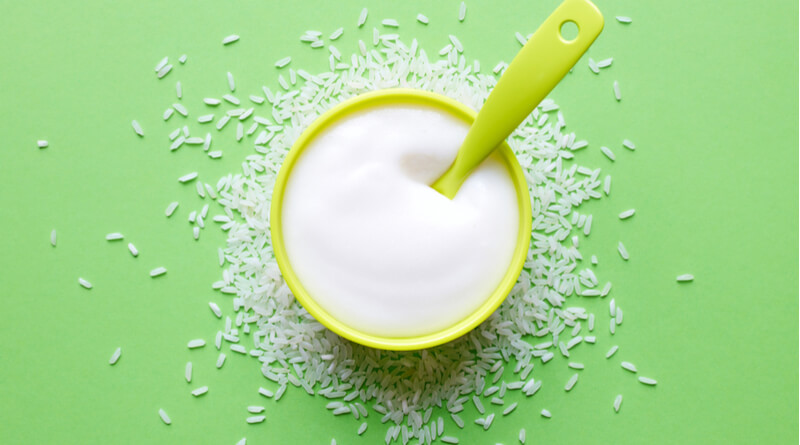Some children cannot digest cow’s milk. Some others are allergic to it. In these cases, parents always find it difficult to understand which milk type to include in the baby’s diet. Some parents give soy milk or almond milk to the child but there are some kids who are allergic to soy and nuts. For such children, rice milk is the best option. It is lactose-free as well. Here are the benefits of rice milk. However, make it a point to consult your doctor first before you start feeding your toddler rice milk.
Things to remember about rice milk
- Rice milk is made from rice grains. The grains are run in a mill and then through diffusion, the granules are eliminated once pressing is done. Rice flour can also be used. Rice milk is sweet in taste and contains mainly carbohydrates. It is the best alternative for children who are allergic to milk.
- Rice milk is not a source of vitamin B12 since it is a plant-derived food. Experts recommend alternating rice milk with better fat and nutrition sources.
Benefits of rice milk
- It is least allergy-inducing as it does not contain cholesterol. It is the vegan source of milk and is sweeter than other types of milk.
- It is also known to treat diarrhea in children as it can be easily digested.
- After cow’s milk, rice milk contains the largest amount of sugars, calories, and carbohydrates.
- Rice milk is the safest option for children who are allergic. However, rice milk is not a substitute for breast milk. It is the substitute for cow milk or almond milk (if recommended by the doctor) and is known to not evoke allergies.
Risks associated with rice milk
- Rice milk has no protein and is not the ideal replacement for cow’s milk.
- It does not contain iron and it is high in sugars and carbohydrates and thus cannot be given to children who suffer from diabetes.
- It is best to consult with your doctor before you begin feeding your kid rice milk.








